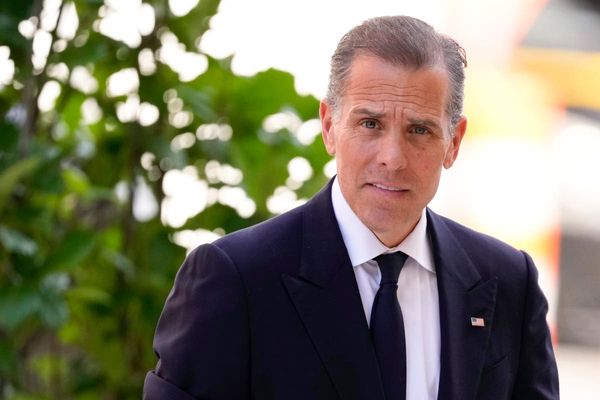Sure, investing and tax planning for the long haul is a winning strategy. But you can also boost your odds of getting ahead by making a few no-brainer money moves in 2024 that will add up to big bucks later.
Building wealth is about getting the most out of every dollar and doing a lot of little things right. Like not leaving a single penny on the table due to laziness or inertia. Taking advantage of as many savings incentives as you can. And doing what you can to trim your tax bill.
You should be "moving the needle" with each financial decision you make, says Russell Hackmann, president of Hackmann Wealth Partners.
A steady string of wins can go a long way toward boosting your odds of financial success:
Scooping up a few extra percentage points in your money market account helps. Increasing the amount you save in your 401(k) each year is a plus. Shopping for a more tax-friendly retirement savings account can translate into a bigger nest egg. Paying down balances on credit cards with sky-high interest rates frees up cash. As does harvesting investment losses to offset as much as $3,000 in ordinary income.
Taken together, these incremental gains for investing and tax planning can't be underestimated.
"It's like when you're a kid and you notice a penny on the sidewalk, and your grandma says, 'Pick it up, every penny counts,'" said Hackmann.
If you've never viewed your finances in this way, 2024 is the time to start. Here are eight easy ways to boost your bottom line in the new year:
Get Full Value For Your Cash
Cash is no longer trash. Eleven interest rate hikes from the Federal Reserve since March 2022 means you can earn real dough risk-free.
The average one-year CD nets you 5.19% in interest and money market accounts pay 3.87%, according to Bankrate. But you can find even better deals if you shop around. You can lock in a 5.65% 12-month CD and earn as much as 4.60% on a money market, Bankrate data through Dec. 7 show.
"Keep your cash where it's rewarded and grows faster," said Sarah Foster, an analyst at Bankrate.
So, check your account statements and see what rate you're currently earning on money market accounts. If it's a piddly 0.03% or 0.04%, the annual percentage yield (APY) offered by many major banks, move that cash to a financial institution, such as an online bank, that will pay you more.
There's no reason to earn zero on cash in savings or checking accounts. The opportunity cost is huge.
"For someone who has a savings balance of $10,000, (earning 5%) amounts to an extra $500 a year," said Foster. And if you're saving up for a down payment to buy a home and have, say, $100,000 sitting in a high-yield savings account, you could earn an additional $5,000 per year.
If you fear the Fed will start cutting rates aggressively in 2024 and you don't want to see today's money market yield of 5% shrink to 4% or lower, you should consider locking in a higher rate on a CD.
"People should look at the money they have in cash and make sure it has not been forgotten about and is not earning less than what they can get," said Thomas Martin, senior portfolio manager at GLOBALT Investments.
Earn More On Bonds
"Bonds are back," said Joe Davis, Vanguard's global chief economist and global head of investment strategy. You can thank the Fed's rate-hiking cycle for that. Yields on bonds are far higher than they were when the Fed had rates pegged at 0%.
That means investors can get stock-like returns by owning bonds. Vanguard now expects U.S. bonds to return between 4.8% and 5.8% per year over the next decade. That's much higher than the 1.5% to 2.5% annualized returns the fund company expected before the Fed began raising rates.
"We believe this rise in interest rates is the single-best financial development in 20 years for long-term investors," said Davis.
Investors in search of higher yields in 2024 should consider investment grade corporate bonds and high-yield bonds, said Scott Ladner, chief investment officer at Horizon Investments. "You can earn more with bonds than cash," said Ladner. "You can basically double your cash yield with bonds. And there's not a whole lot more risk associated."
If the Fed engineers a soft landing and the U.S. economy avoids recession, investors may see 8% returns for investment grade corporates and 9% on so-called junk bonds, JPMorgan Chase's global head of credit research Steve Dulake said at a recent Bloomberg conference.
A Second Opinion On Investing And Tax Planning
Often, getting a second opinion from another oncologist or cardiologist is a smart move. It also makes financial sense "to get a second opinion on your financial plan," said Hackmann.
The key things to look out for are high investment fees and underperforming assets.
At a minimum, you should at least review your financial plan with your advisor to make sure you're still on track to reach your goals, says Ladner.
Saving even 50 basis points, for example, on the fees your financial advisor charges you to manage your portfolio assets can add up to real savings. Paying half a percentage point less on a $500,000 portfolio will net you $2,500 in annual savings. Similarly, if you exchange assets in your portfolio that have consistently posted lower returns than the benchmark indexes they track for better-performing ones, your nest egg is likely to get a lift as well.
Do-it-yourself investors who are struggling to manage their money on their own might also benefit from getting professional advice from a financial planner to help with the complexity of managing money, says LaVigne. That's especially true, he says, for those who are past the accumulation stage and more worried now about ways to generate income, make sure their money won't run out, and make account withdrawals in the most tax-efficient way.
Industry studies estimate that professional financial advice can add between 1.5% and 4% to portfolio returns over the long term, according to Fidelity Investments.
A financial advisor can save you a bundle over time by talking you out of bailing out of the market during volatile times so you don't miss the rebound or adding value by creating the right mix of stocks and bonds for you and improving the tax-efficiency of your portfolio.
Get A Good Deal On Stocks
Not every type of stock this year registered a wow performance like the Magnificent Seven tech stocks. So, tear a page out of the value investing playbook of the late billionaire Charlie Munger, the longtime sidekick of Warren Buffett at Berkshire Hathaway. Consider buying stocks that are on sale.
Small cap stocks, for example, have severely lagged both large-cap stocks and the tech names in the Nasdaq. The Russell 2000's 6.1% return (through Dec. 7), falls far short of the S&P 500's 19.4% gain and is more than 30 percentage points less than the Nasdaq's 37% return.
Ken Farsalas, manager of Oberweis Micro-Cap, says small caps are selling at the biggest valuation discount to large-cap stocks since the late 1990s. "So, from a contrarian standpoint, you should love small caps here," said Farsalas. The catalyst to get small fries moving again? Interest rate cuts from the Fed would certainly help, says Farsalas.
"Trust the data, trust the statistics," said Farsalas. Small caps will eventually turn and an investment in these laggard stocks will "pay off very handsomely," said Farsalas.
Make your 401(k) Work Harder
This part of investing and tax planning is not rocket-science. But socking away more in your 401(k) and stashing your money into the right investments is a no-brainer. It's a way to boost both your return potential and retirement readiness. You'll also benefit from tax-free growth and other tax savings.
"One of the big ways to move the needle (in your financial life) is to improve your 401(k)," said Hackmann.
To sock away more of your paycheck in your 401(k), take advantage of rising wages and use funds from any raise or bonus to boost your retirement savings, Hackmann advises. "If you get a 4% raise, for example, increase the percent of your paycheck going into your 401(k) from, say, 7% to 8%," said Hackmann. "Little things like that help."
Remember, the maximum you can contribute to your 401(k) in 2024 has increased by $500 to $23,000. So, if you typically max out, increase the percentage deducted from your paycheck to take advantage of the higher contribution limit.
And, be sure to contribute enough in your 401(k) to get your company's matching contribution. "That's free money," said Kelly LaVigne, VP of Consumer Insights at Allianz Life Insurance Company of North America.
And pay attention to what you're investing in, adds Hackmann. If you have five or 10 years before you retire or need the money, you should go for growth and have a healthy helping of stocks in your retirement account. You should also revisit so-called zombie accounts you've forgotten about to make sure your asset mix is moving you forward. You'll also save on taxes if you put investments that distribute sizable capital gains and dividends, such as mutual funds and real estate investment trusts, into tax-deferred employer-sponsored retirement savings plans.
Consider A Roth Retirement Account
More employers are offering Roth 401(k)s. Like Roth IRAs, any contributions you make will be made with already taxed dollars. But your money will grow tax-free, and you won't have to pay any taxes on withdrawals in retirement. The downside of traditional 401(k)s, which give you a tax break up front, is that your withdrawals are taxed at your ordinary income tax rate — which amounts to a tax trap.
The investing and tax planning implications are important. In fact, 72% of Americans "worry that higher taxes in the future will impact their retirement income from tax-deferred accounts such as a traditional 401(k) or IRA," according to a recent study by Allianz Life Insurance Company of North America.
Another big plus of a Roth 401(k) is that anyone can contribute, regardless of income level. In contrast, only individuals earning less than a certain amount can contribute to Roth IRA, according to Charles Schwab. Another plus of a Roth 401(k) is that the contribution limit in 2024 is $23,000 or $30,500 for those 50 or older. The max contribution for a Roth IRA is $7,000 and $8,000 for savers 50 and up.
Roth accounts are a good choice if you think taxes will be higher when you retire than they are now. And with Donald Trump's tax cuts expiring at the end of 2025, this coming year and next may be a good time to fund a Roth.
"Paying taxes now at lower rates is a smart move," said Hackmann.
And remember, if you've been thinking of maxing out your 2023 Roth IRA or traditional IRA, you have until the April 15, 2024, tax-filing deadline to contribute to your account.
Boost Your Financial Security With Smart Tax Planning
It also makes financial sense to take advantage of changes in federal laws that intent savings.
"Anything you are eligible for, you need to try to take advantage of," said Martin.
For example, thanks to the SECURe Act, beginning in 2024, employees will have the option of receiving company matching contributions in an after-tax Roth 401(k). This is an easy way to diversify your portfolio from a tax perspective and increase the amount of funds subject to tax-free withdrawals in retirement.
2024 is also the first year that Roth accounts in employer-sponsored retirement plans will be exempt from required minimum distributions (RMDs). That rule change means any money invested in Roth 401(k)s can grow tax-free forever.
And parents who opened 529 college savings plans for their kids who have money left over in those accounts, can now roll those dollars (up to a lifetime limit of $35,000) into Roth IRAs for their kids (or beneficiaries). The upside: parents can help fund their children's retirement nest eggs.
Fund Your Health Savings Account
When it comes to investing and tax planning, there's no friendlier account than an HSA, which is available to people who select a high deductible health plan. HSAs have triple tax advantages. Your contributions go in tax free, your money grows tax free, and you don't pay any taxes on qualified withdrawals.
READ: Health Savings Accounts: From Simple Savings To Investment Powerhouse
The good news is you still have time to fund your HSA in full for 2023, as you have till the April 15, 2024, tax filing deadline. For the calendar year 2023, individuals can contribute up to $3,850 and families can sock away $7,750. Savers older than 55 can contribute an additional $1000. In 2024, contribution maximums rise to $4,150 for single folks and $8,300 for families, and those 55 or older can deposit an extra $1,000.
"It's one of the best deals, so you want to try to maximize that," said LaVigne.







